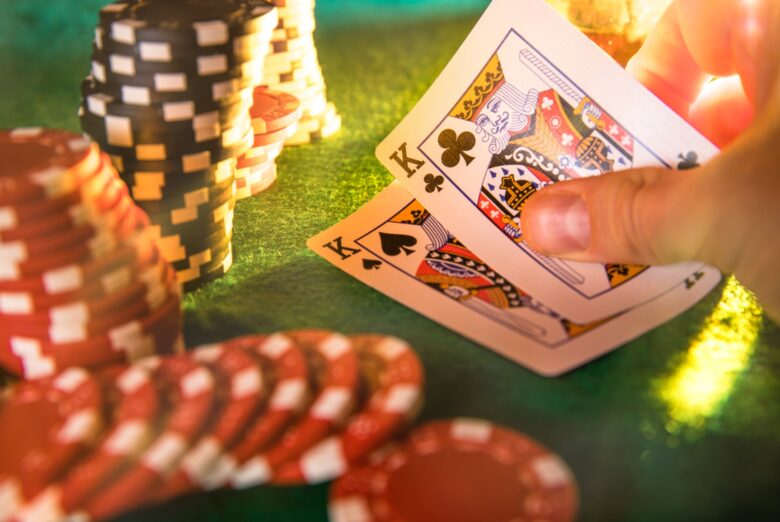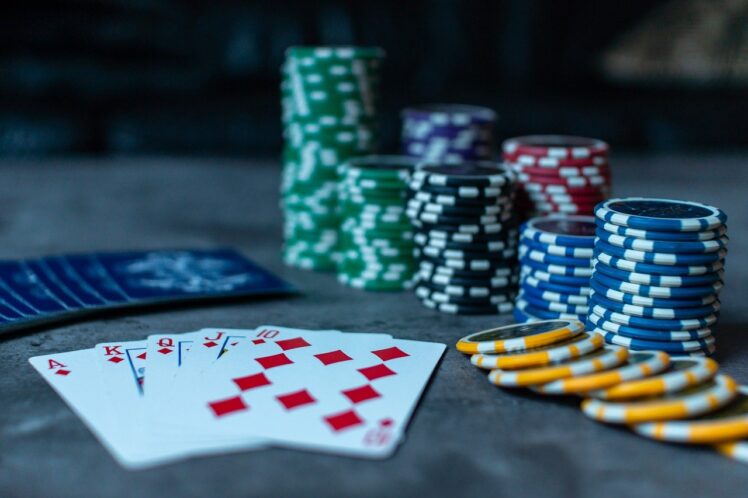Are you looking to take your poker game to the next level? Winning poker takes more than just luck – it takes dedication, skill, and strategy! Get the inside scoop from the pros with this collection of tips and tricks to help you win big. You can start improving your game today!
Understanding Your Opponents
When playing poker on casino sites, understanding your opponents is one of the most important factors in making sure you come out ahead. Knowing which players are loose or tight, how often they raise, when they stick to the rules of basic strategy and when they are likely to bluff can give you an edge over the competition.
The pros all have a strategy for reading their opponents. Professional players watch closely for body language and other verbal or physical clues that indicate strength or weakness in another player’s hand. Be observant and pay attention to subtle changes in betting patterns, use the information you have to determine what strategies your opponents are likely to employ and be ready to adjust your own play accordingly.
Another part of understanding your opponents is analyzing their skill level. Are they amateurs or experienced players? Do they play well with higher stakes? Pay close attention to reactions from pros when novice players make common mistakes such as calling raises without enough chips or betting too little at a crucial moment in the game. These reactions can be valuable indicators about which type of players you should target for successful outcomes at the table.

Source: canva.com
Developing Your Strategy
Every successful poker player has a strategy. In order to be successful in any form of poker, you must learn and develop strategies to help you identify profitable situations and make good decisions. After all, the goal of poker is to make the best hand or get your opponents to fold. Here are some tips from experts on how to develop a successful poker strategy:
- Set clear goals: Your goal in any game should be clear and determine your overall strategy for the session. If you’re playing for fun, then your goal might be to have a good time and try out different tactics; if you’re set on winning then you need to have an idea of what that looks like.
- Learn the game: Taking time to understand the rules and regulations of each variant is essential in order to become knowledgeable; this includes researching strategy materials as well as playing practice hands or tournaments at lower levels than normal before venturing onto higher levels.
- Pay attention: You should always pay attention while playing, especially when it comes time for decisions since this will determine whether or not you win or lose pots depending on your decisions made during the hand. Paying close attention will also help improve overall analysis skills when it comes time for decision-making during each hand.
- Analyze opponents: It’s important that you analyze how other players around the table play, so it’s wise to take few moments between hands just watching how everyone else plays so that way if they are ever sitting at your table again you know how they approached certain situations in the past which can give more insight into how they will approach them again in upcoming hands with different hole cards possibly indicated theirs).

Source: professionalcasino.co.uk
The Art of Bluffing
The art of bluffing in poker is a skill that can be mastered with practice. It involves concealing the strength of one’s hand by betting or raising when one does not have a strong set of cards, and is often used to maximize value from weak hands. Even the most experienced poker players have difficulty correctly guessing when their opponents are bluffing, so it is important to be aware of tell-tale signs that other players may be using to give away their strategy.
One way to identify if someone is bluffing is by observing if they take extra time in deciding how much to bet or raise before actually committing any chips. This could indicate they are trying to guess what kind of hand you might hold and how much money they should wager in order to get away with it. Additionally, other players may begin talking or using diversionary tactics like working on their chips while they are deciding what move they should make.
Another way to spot bluffs is by keeping an eye out for patterns in betting; if you notice someone tends to raise every time you put a certain amount into the pot, chances are that player has a strong hand and wishes to drive up the cost for everyone else involved in the game. On the opposite end, if another player reliably folds after significant raises but rarely bets large amounts when others have already done so early on, then you can bet that person does not have a formidable set of cards and may opt for deception instead.
By becoming familiar with these subtle clues, winning poker players can assess their opponents more accurately and make more profitable decisions overall.

Source: canva.com
Final Thoughts
Poker is a game that anyone can learn, but few master. It’s all about the skill, creativity and sheer luck that each player brings to the table. Preparing for a poker game starts before you actually get to the table; you have to study the odds of your opponent’s moves as accurately as possible, as well as predict their next move.
By honing in on these skills, some poker players become legends in their own right. While there are no magical formulas that guarantee success every time you sit at a table, there are certain skills and strategies successful poker players employ on a daily basis. Following these generally accepted principles can lead to absolutely incredible wins when employed at strategic points throughout each poker game.
From understanding how much money to invest in each hand to learning how top pros calibrate their reactions during different stages of the game, your strategy should always be evolving to stay ahead of your opponents.
